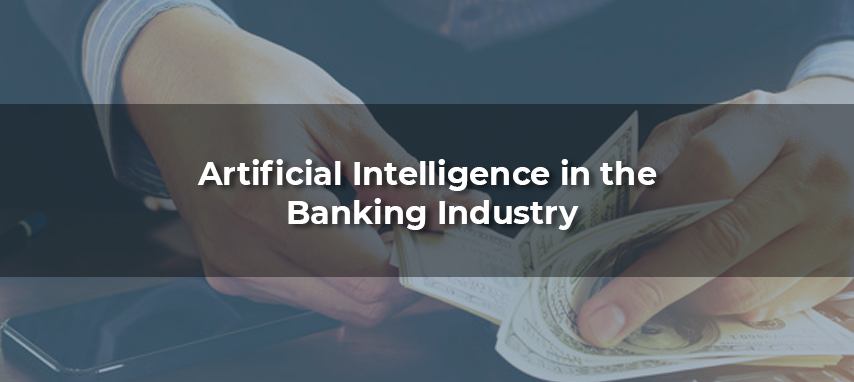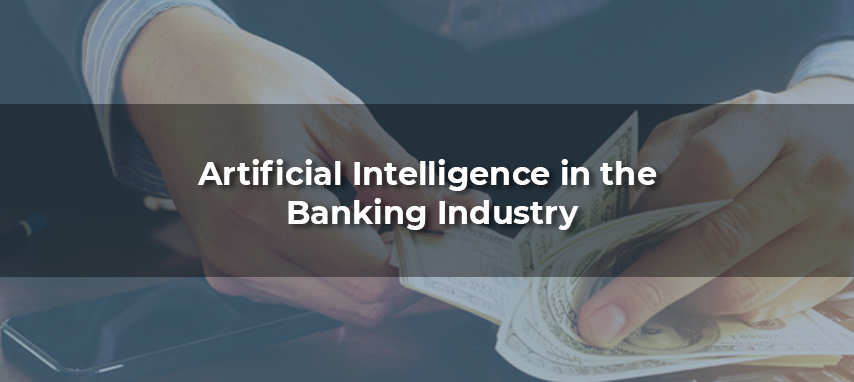Artificial intelligence (AI) is the adoption of human intelligence processes by machines, especially computer systems and mobile applications. It enables the creation of intelligent machines that works and reacts like humans. Some activities that AI can be designed for include speech recognition, learning, strategizing, and problem solving. AI is already rampant in several industries mostly in the form of iOT applications, Machine Learning and perhaps even Data Engineering. The coming year shall witness Artificial Intelligence make a strong impact also on the banking industry across Florida.
The banking industry features a world of computers and networks. The aspect that is often overlooked is that the bulk of the world's wealth is stored in databases and transactions are simply the exchanges of information over networks. Nothing is physical.
Artificial Intelligence helps the banking firms to have insights into customers' preferences, ensure that the customers are satisfied with services provided and customize future strategize based on these inputs. Hence applications with AI can help in examining the data base effectively and make it easier for the banks to recommend, forecast and execute tailored financial advice to customers. Also, AI applications enable gathering quick information on financial strategies, loan rates as well as insights into future market progress.
Advantages of using AI in Banking Sector
Reduces Operating Costs and Risks: Despite the massive digitization in all banks across the United States, there still remain several processes that are largely handled by human resources. In these, chances of errors are high and banks could face huge losses as a single numeric gone wrong or a single wrong filing of a data could result in losses up to millions! Artificial Intelligence or rather applications integrated with AI can be used to eliminate a lot of time consuming and error-prone work. These may be involved in entering customer data from contracts, forms as well as other sources. Improved handwriting recognition, natural language processing and other technologies, combined with intelligent process automation tools can come in handy to handle a wide range of banking workflows.
Availability 24/7: Banks are not open all the time; but customers may always have needs. Moreover, everyone is busy with his or her own professions and may not be able to visit banks during working hours. Conversational assistants or Chatbots can change this. This is done in the form of automated responses to the most common queries. For example, a customer may wish to know the procedures of opening a bank account. Such popular queries are fed into the chatbot along with relevant responses. Hence an accurate response can be shared with the customer at any time of the day and at any location.
Ensures Regulatory Compliance: Banking is one of the most highly regulated sectors in the United States. There are a lot of guidelines that organizations in this industry have to comply with. It makes sure banks have acceptable risk profiles to avoid large-scale defaults, as well as to make sure banking customers are not using banks to perpetrate financial crimes like fraud and money laundering. Complying with these regulations isn't easy. It requires more investment and could invite heavy penalties if not done accurately. The best solution would be to depend on AI tools such virtual assistants to monitor transactions, keep an eye on customer behaviors, and audit as well as log information to various regulatory systems.
Enables Preparation of Accurate Credit Scores: Banks as well as other financial institutions can use AI-based systems to help make more informed, safer and profitable loan and credit decisions. The current credit score estimation systems are far from perfect and can be influenced by individual human thoughts or emotions. Hence they often feature errors, missing real-world transaction history and misclassifying creditors. In addition to using data that's available, AI-based loan decision systems and machine learning algorithms can study the behaviors as well as patterns of customers. These systems can determine the person's eligibility for a loan as well as the likelihood that the amount will be repaid.
We have given a good picture of how the integration of AI into systems and applications can benefit banking as well as finance organizations in Jacksonville and other parts of Florida. SGS Technologie would be glad to discuss more what AI solutions can be developed to meet the unique requirements of each banking or finance company.

<script type="application/ld+json">
{
"@context" : "http://schema.org",
"@type" : "Article",
"name" : "Artificial Intelligence in the Banking Industry",
"author" : {
"@type" : "Person",
"name" : "majestic"
},
"image" : "https://www.sgstechnologies.net/sites/default/files/2020-01/Artificial%20Intelligence%20in%20the_0.png",
"articleSection" : "Artificial intelligence (AI) is the adoption of human intelligence processes by machines, especially computer systems and mobile applications.",
"articleBody" : "It enables the creation of intelligent machines that works and reacts like humans. Some activities that AI can be designed for include speech recognition, learning, strategizing, and problem solving. AI is already rampant in several industries mostly in the form of iOT applications, Machine Learning and perhaps even Data Engineering. The coming year shall witness Artificial Intelligence make a strong impact also on the banking industry across Florida.</P>\n\n<P>The banking industry features a world of computers and networks. The aspect that is often overlooked is that the bulk of the world's wealth is stored in databases and transactions are simply the exchanges of information over networks. Nothing is physical.</P>\n\n<P>Artificial Intelligence helps the banking firms to have insights into customers� preferences, ensure that the customers are satisfied with services provided and customize future strategize based on these inputs. Hence applications with AI can help in examining the data base effectively and make it easier for the banks to recommend, forecast and execute tailored financial advice to customers. Also, AI applications enable gathering quick information on financial strategies, loan rates as well as insights into future market progress.</P>\n\n<P><STRONG>Advantages of using AI in Banking Sector</STRONG></P>\n\n<P><STRONG>Reduces Operating Costs and Risks: </STRONG> Despite the massive digitization in all banks across the United States, there still remain several processes that are largely handled by human resources. In these, chances of errors are high and banks could face huge losses as a single numeric gone wrong or a single wrong filing of a data could result in losses up to millions! Artificial Intelligence or rather applications integrated with AI can be used to eliminate a lot of time consuming and error-prone work. These may be involved in entering customer data from contracts, forms as well as other sources. Improved handwriting recognition, natural language processing and other technologies, combined with intelligent process automation tools can come in handy to handle a wide range of banking workflows.</P>\n\n<P><STRONG>Availability 24/7: </STRONG> Banks are not open all the time; but customers may always have needs. Moreover, everyone is busy with his or her own professions and may not be able to visit banks during working hours. Conversational assistants or Chatbots can change this. This is done in the form of automated responses to the most common queries. For example, a customer may wish to know the procedures of opening a bank account. Such popular queries are fed into the chatbot along with relevant responses. Hence an accurate response can be shared with the customer at any time of the day and at any location.</P>\n\n<P><STRONG>Ensures Regulatory Compliance:</STRONG> Banking is one of the most highly regulated sectors in the United States. There are a lot of guidelines that organizations in this industry have to comply with. It makes sure banks have acceptable risk profiles to avoid large-scale defaults, as well as to make sure banking customers are not using banks to perpetrate financial crimes like fraud and money laundering. Complying with these regulations isn�t easy. It requires more investment and could invite heavy penalties if not done accurately. The best solution would be to depend on AI tools such virtual assistants to monitor transactions, keep an eye on customer behaviors, and audit as well as log information to various regulatory systems.</P>\n\n<P><STRONG>Enables Preparation of Accurate Credit Scores:</STRONG> Banks as well as other financial institutions can use AI-based systems to help make more informed, safer and profitable loan and credit decisions. The current credit score estimation systems are far from perfect and can be influenced by individual human thoughts or emotions. Hence they often feature errors, missing real-world transaction history and misclassifying creditors. In addition to using data that's available, AI-based loan decision systems and machine learning algorithms can study the behaviors as well as patterns of customers. These systems can determine the person�s eligibility for a loan as well as the likelihood that the amount will be repaid.</P>\n\n<P>We have given a good picture of how the integration of AI into systems and applications can benefit banking as well as finance organizations in Jacksonville and other parts of Florida. SGS Technologie would be glad to discuss more what AI solutions can be developed to meet the unique requirements of each banking or finance company.",
"url" : "https://www.sgstechnologies.net/blog/artificial-intelligence-banking-industry",
"publisher" : {
"@type" : "Organization",
"name" : "SGS"
}
}
</script>











